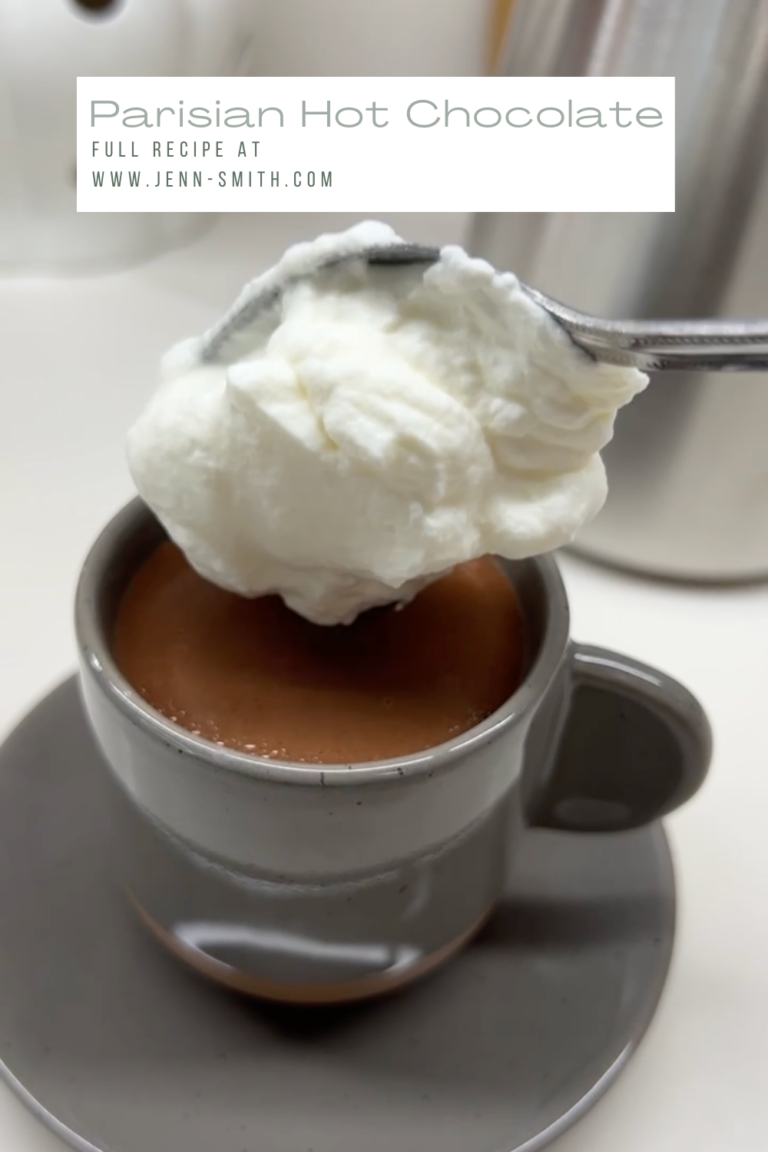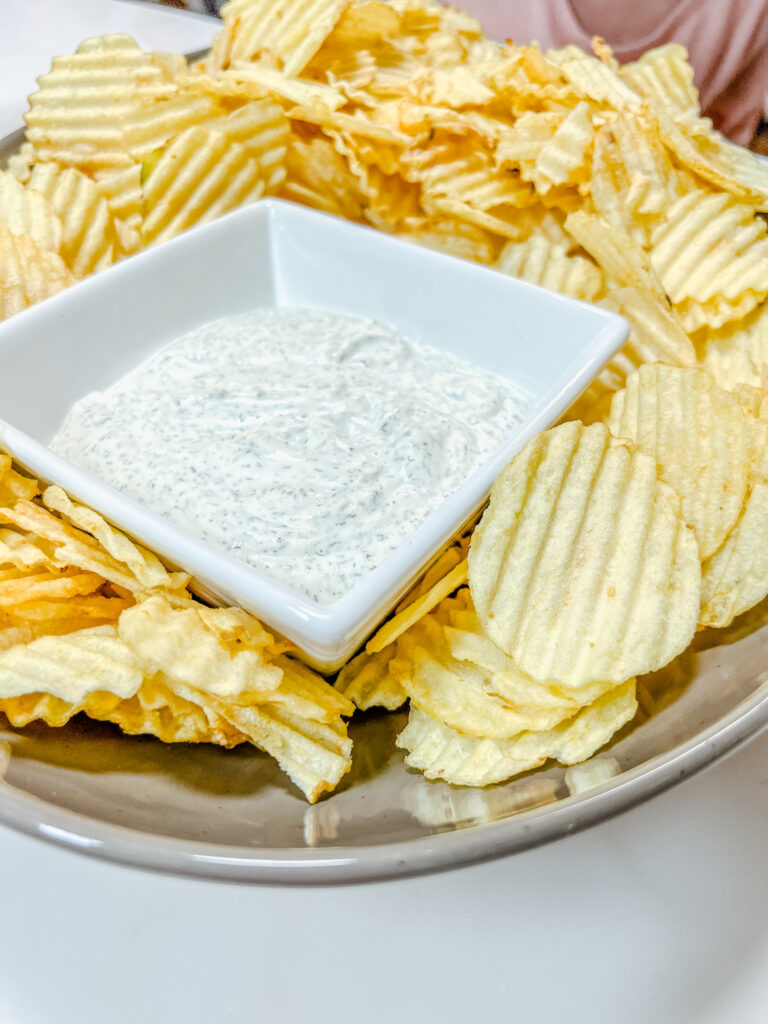How to: Use Fish Sauce
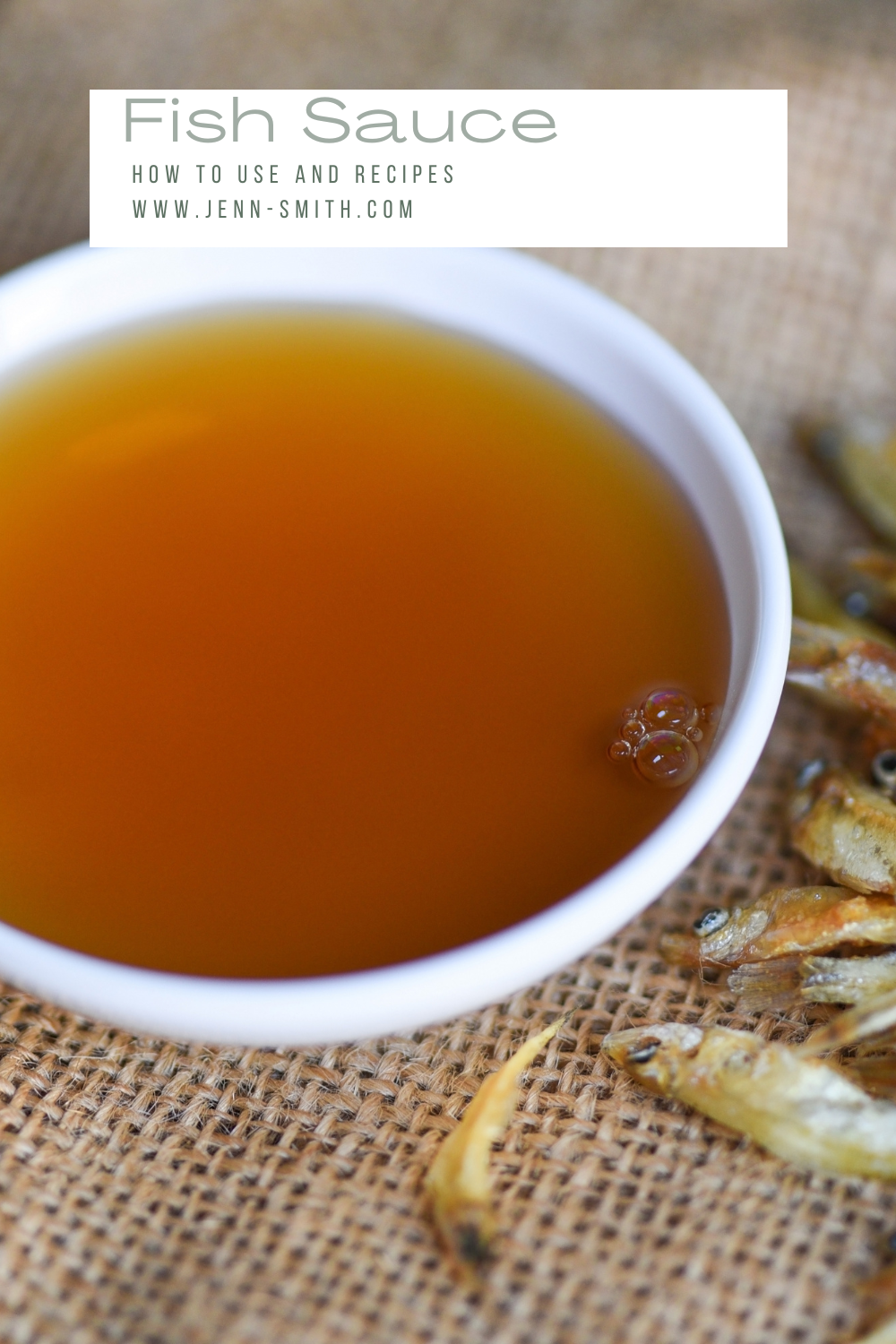
This post may contain affiliate links. That means I may make a small commission on items purchased through links in this post at no extra cost to you! Affiliate Disclaimer
OH FISH SAUCE, one of my favorite additions to food. I can’t imagine a world without it. but I have found, at least around my non-Asian peeps, that it is heavily misunderstood. The biggest misconception about fish sauce is that it’s “fishy.” And sure, it might smell fishy—I mean… it’s MADE OF FISH—but in cooking, it actually functions more like salt, and brings a deeper, savory, umami punch to whatever it’s splashed into (Even more than Soy Sauce that, IMHO, is a bit overly loved by Americans).
So what even is this stinky beautiful liquid, really? How does it not make things taste like fish? And how can you use it to its full potential?
This condiment is thousands of years old and is considered a truly important and necessary ingredient in many cultures.
Before we get into anything else… what is Umami?
Umami is Japanese for deliciousness and is used to describe savoriness. Savoriness is one of the five basic tastes (saltiness, sweetness, bitterness, sourness, and savoriness). It has been described as savory and is a characteristic of broths and cooked meats
um ok… so what is exactly?
It’s a fermented condiment typically made from anchovies. While nuoc mam (Vietnamese fish sauce) and nam pla (Thai fish sauce) are among the most widely available types of fish sauce in the U.S., it exists in slightly varying styles all over the world: ngan-pya-ye (Burmese), tuk trey (Cambodian), budu (Malaysian), patis (Filipino), colatura di alici (Italian), shottsuru (Japanese), aekjeot (Korean).
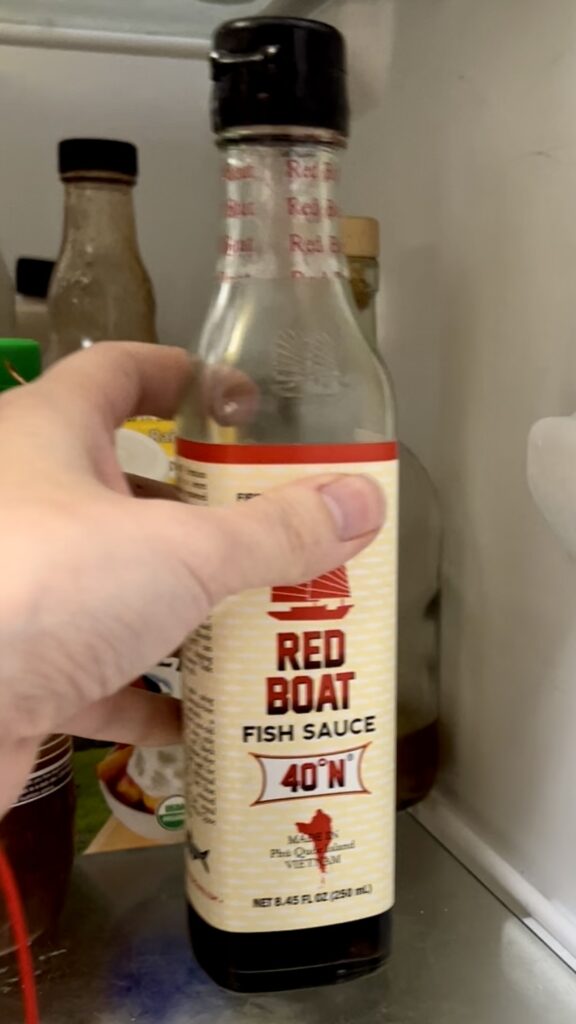
So… how’s it made?
Simply put, fish (anchovies are the most commonly used, but some brands contain trace amounts of by-catch like squid and other small swimmers) are combined with salt and aged in barrels for six months to a year (or longer). The salt draws out the moisture and preserves the anchovies so they can ferment for long periods without spoiling, during which microbes grow on the fish, deepening the sauce’s flavor. The liquid is strained and sun-dried, then aged a month or so more in ceramic urns or plastic barrels before bottling.
What should I look for when I’m buying it?
The good stuff has just two ingredients: fish and salt. Some brands add sugar for balance, which isn’t the end of the world (But I like to control the sweetness so I avoid it), but anything else is suspect. Red Boat, is my favorite fish sauce. It has a deep, not-too-salty flavor and it’s readily available in most grocery stores around the US.
shop this post

Red Boat Premium 40°N Fish Sauce (17 fl oz)
Buy Now →Ok, but how do I store it?
It stays good for several years, but note: that it may darken and concentrate in flavor over time. Also, if your kitchen gets hot, or if you don’t use fish sauce as often, then you should keep it in the refrigerator.
Once I have it, how should I use it?
One thing to note… A little goes a long way—sprinkle a few drops anywhere you want some extra-savory/umami flavor. Try it in…
- Vinaigrettes
- Pasta sauces where you’d use anchovies, like marinara
- noodle dishes
- Braised meats
- Marinades
- Soups
- Stir-fries
- dairy dips
Ready for a recipe? Try one of these these!
- Pork Wonton Burgers
- One-Pot Rigatoni Ragu
- Asian Cucumber Salad
- One-Pot Ground Beef Stroganoff
- Beef Meatballs in Mushroom Gravy





What are you gonna try fish sauce with?
Comment below and let me know what you’re making!
Don’t forget to tag me on Instagram or Facebook, @jenngiamsmith #JennGiamSmith I will always share your posts on my stories and tag you! You can also share it on this post’s Pinterest Pin! Don’t forget to follow me on Pinterest for a steady stream of recipe (and other) inspiration!
Want to remember this post?
Pin it to your favorite Pinterest Board!
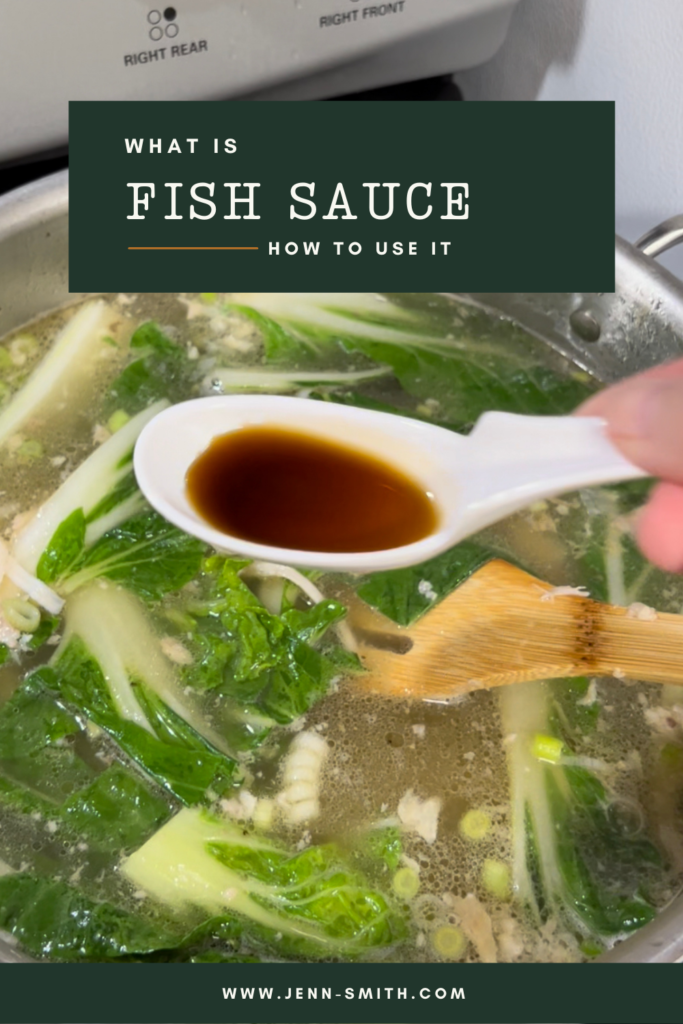
All rights reserved. You may NOT use any of my photographs for your site. You may link this post, giving credit to me and my site. ©2022 Jenn Giam Smith™; Jenn Smith, LLC; Always Jenn Smith (FKA Smith Country, LLC)



